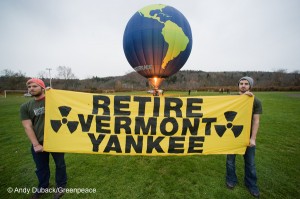 On November 13, 1850, the Vermont legislature passed what it called the “Habeas Corpus Law,” in response to President Millard Fillmore’s signing of the “Compromise of 1850.” The Vermont bill effectively nullified the “Compromise,” a series of laws which further entrenched the fugitive slave laws, and imposed even greater burdens on the states and their people. Unwilling to assist in the apprehension and extradition of slaves seeking emancipation in the Free states, Vermont’s legislature intervened on behalf of its citizens and anyone seeking freedom in the Green Mountain State.
On November 13, 1850, the Vermont legislature passed what it called the “Habeas Corpus Law,” in response to President Millard Fillmore’s signing of the “Compromise of 1850.” The Vermont bill effectively nullified the “Compromise,” a series of laws which further entrenched the fugitive slave laws, and imposed even greater burdens on the states and their people. Unwilling to assist in the apprehension and extradition of slaves seeking emancipation in the Free states, Vermont’s legislature intervened on behalf of its citizens and anyone seeking freedom in the Green Mountain State.
This spirit of nullification in the New England states began more than one hundred fifty years ago, but it’s hardly gone. For the past few years, an ongoing dispute has been brewing between Entergy Corporation, the owner of the Vermont Yankee nuclear power plant, and many of the residents of Vernon, Vermont, the site of the plant. On one side is Vermont’s legislative body, which has been supportive of the local citizens, and on the other, the Nuclear Regulatory Commission, which has been favorable to the Entergy Corporation.
Forty years ago this past March, the power plant first began operation. Over the decades the plant has been the site of many protests from environmental protection groups, who are concerned over the impact of such plants. The concerns grew over the last few years, as safety issues were raised following a cooling tower collapse and an underground leak contaminated ground water. Two years ago, the Vermont legislature overwhelmingly denied the plant a license renewal and just a few weeks ago it expired.
The state is now moving to adopt a more sustainable energy program, hoping to eliminate more traditional power plants, including nuclear. Obviously having their plans interfered with by the various federal agencies hinder their attempts and are a violation of the constitution’s Tenth Amendment.
The present economic viability of sustainable energy notwithstanding, if the residents of Vermont want to pursue such means, they have every right to do so. The federal courts have no authority to overrule the people, or state legislatures, in such matters, any more than they should be permitted to decide what medicines are allowed or what constitutes “legal” milk. These are concerns for the states.
Presently the case is being appealed to the 2nd Circuit Court in New York, after federal judge Charles Murtha ruled in favor of the Vermont Yankee power plant. In his decision, Murtha invoked the 1954 Atomic Energy Act, which preempts the states’ abilities to deal with nuclear power plants operating within their borders.
Now, there are definitely other issues at stake here besides states’ rights, and certainly not the least of them relates to private property. In a free society, energy companies would be able to contract with willing customers and, barring any encroachments on the rights of others, do so on their own terms. But this case isn’t so clear, given that two entities are competing for control over which has the authority to regulate the private business between proprietor and patron.
Adding another layer of nuance is the other side of this property issue: the rights of those living in close proximity to the power plant. Given the moral hazard of allowing the federal government to step in and regulate a business, rather than its own self-interest determining its actions, some consideration must be paid to local residents’ concerns.
For an equally unjust outcome would be if the feds decide that the “public good” represented by the energy produced by the Entergy Corp. outweighs immediate safety concerns and circumvents the state legislature. As economist Walter Block has noted, such was the case in the mid-nineteenth century, when the courts suddenly began ruling in favor of large industrial companies and against plaintiffs seeking redress for their own property violations. This set the path we are now on and it’s unlikely that continued intervention from the federal courts will bring an agreeable resolution.
In what may be a watershed moment in the debate over nullification and states’ rights, Vermont senator and self-identified democratic-socialist, Bernie Sanders essentially spoke out in favor of state sovereignty. He said in a statement that “It is inconceivable to me that Entergy can force Vermont to allow continued operation of Vermont Yankee […] when the people of Vermont want to move aggressively to energy efficiency and sustainable energy.” Of course it isn’t Entergy that is forcing itself on Vermont; it is the federal government, by way of its regulatory agencies and federal judges that have usurped the powers of the states.
Because it is the federal government which empowers corporations, it is the federal government which must be limited in order to rein in the power of big business, in this case “Big Nuclear.” And while environmental protection groups are predominantly aligned with the (sometimes radical) political left, in this arena they can be powerful allies in the fight against the feds. For as much as they want a national government to control the intimate details of our lives, as in the case of a centrally-planned healthcare system, they also have areas in which they want to be left alone. This is something we can certainly relate to, and should look for common ground in the fight for freedom.
- Some Clarification on ‘Integrity’ - August 14, 2013
- Copperhead: A Tenther Film Review - July 19, 2013
- Edward Snowden: Nullifier - June 25, 2013
